- Kent State University's eight-campus network, one of the largest regional systems in the country, serves both the development of a true living/learning approach at the Kent Campus and regional needs on seven other campuses throughout Northeast Ohio. The Kent Campus provides the resources and facilities of a large, diverse university, while the Regional Campuses - Ashtabula, East Liverpool, Geauga, Salem, Stark, Trumbull and Tuscarawas - offer the friendly, casual atmosphere of small liberal arts colleges.
School Highlights
Kent State University at Tuscarawas serves 2,898 students (17% of students are full-time).
The college's student:teacher ratio of 19:1 is lower than the state community college average of 23:1.
Minority enrollment is 17% of the student body (majority Black), which is less than the state average of 38%.
Quick Stats (2025)
- Enrollment: 2,898 students
- In-state tuition: $7,060
- Out-state tuition: $16,168
- Student:teacher ratio: 19:1
- Minority enrollment: 17%
- Source: Verified school update
School Overview
The teacher population of 155 teachers has stayed relatively flat over five years.
Kent State University at Tuscarawas
(OH) Community College Avg.
Carnegie Classification
Baccalaureate/Associate's Colleges: Mixed Baccalaureate/Associate's
Baccalaureate/Associate's Colleges: Mixed Baccalaureate/Associate's
Institution Level
Four or more years
At least 2 but less than 4 years
Institution Control
Public
Private not-for-profit
Total Faculty
155 staff
93 staff
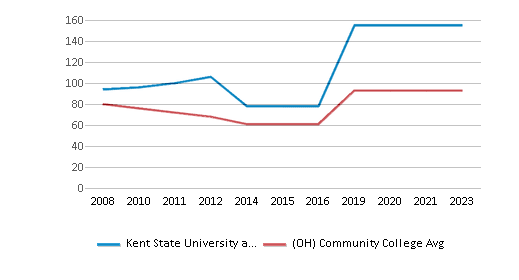
Number of Programs Offered
29
39
School Calendar
Student Body
The student population of Kent State University at Tuscarawas has grown by 38% over five years.
The student:teacher ratio of 19:1 has increased from 13:1 over five years.
The Kent State University at Tuscarawas diversity score of 0.31 is less than the state average of 0.58. The school's diversity has grown by 13% over five years.
Total Enrollment
2,898 students
533 students
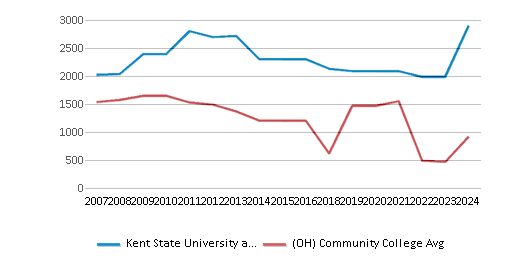
Student : Teacher Ratio
19:1
23:1
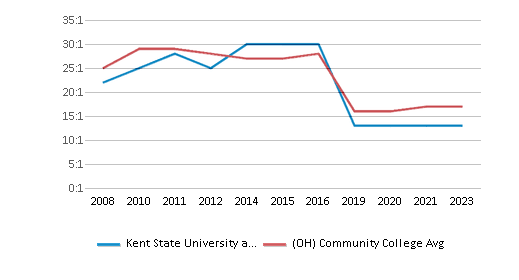
# Full-Time Students
501 students
397 students
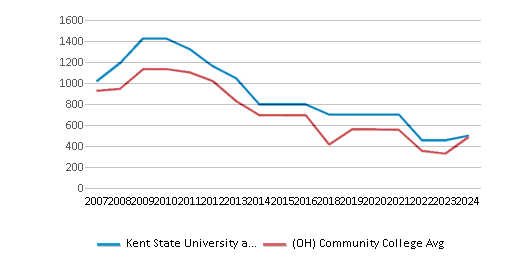
# Part-Time Students
2,397 students
360 students
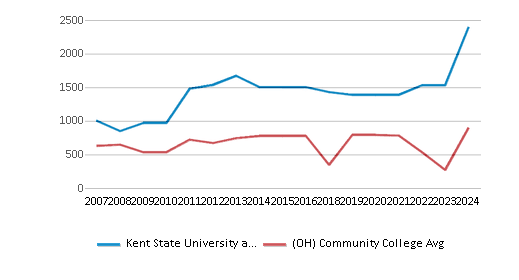
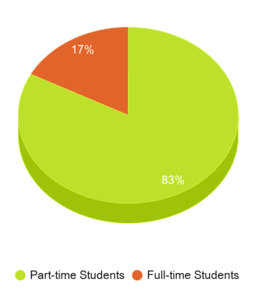
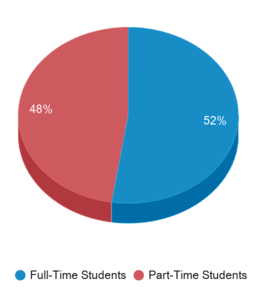
# Enrollment Undergraduate
289 students
308 students
# Full-Time Undergraduate Students
501 students
385 students
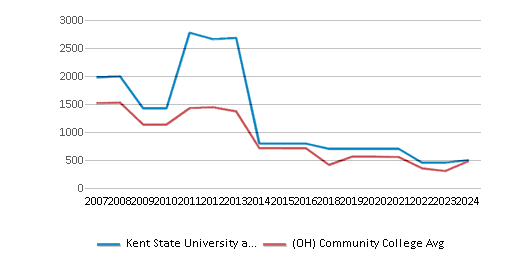
# Full-Time Graduate Students
n/a
10 students
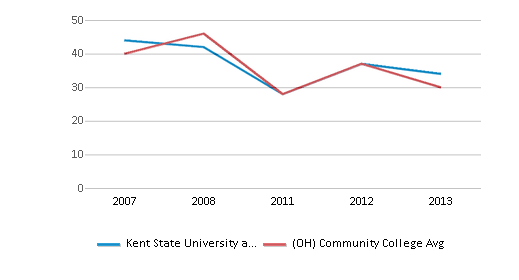
# Part-Time Undergraduate Students
2,397 students
380 students
# Part-Time Graduate Students
n/a
3 students
Total Dormitory Capacity
n/a
425 students
% American Indian/Alaskan
n/a
n/a
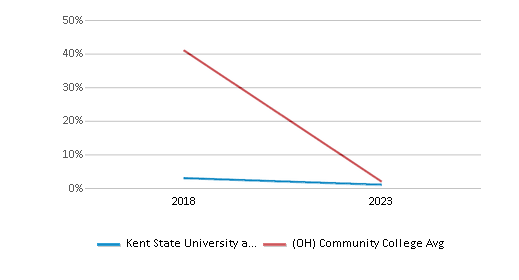
% Asian
1%
4%
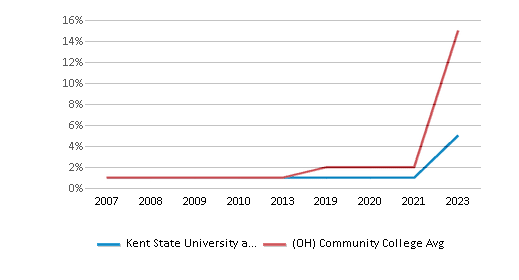
% Hispanic
3%
6%
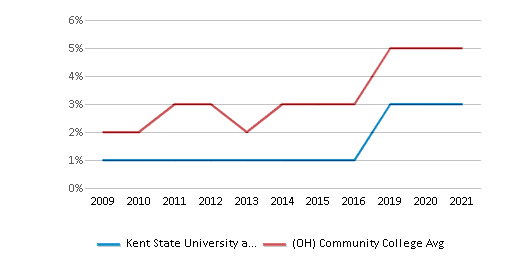
% Black
6%
15%
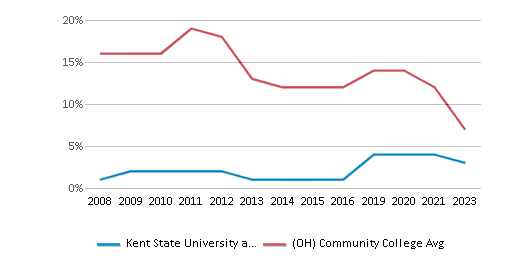
% White
83%
62%
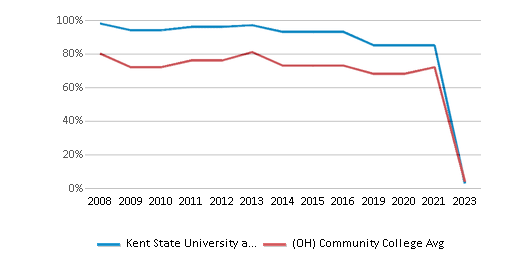
% Hawaiian
n/a
2%
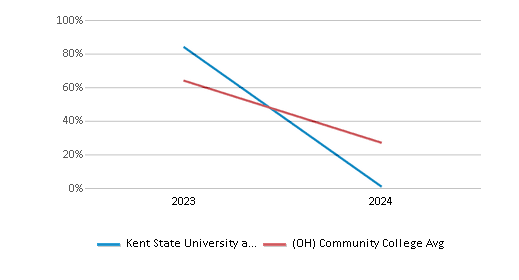
% Two or more races
3%
4%
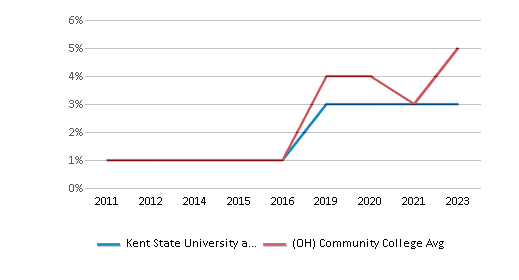
% Non Resident races
1%
1%
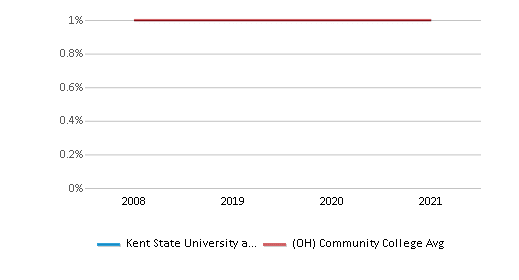
% Unknown races
2%
6%
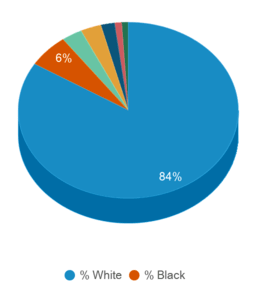
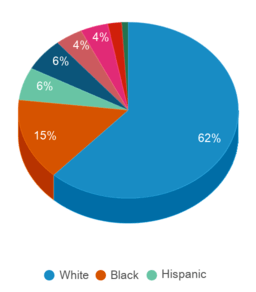
Diversity Score
0.31
0.58
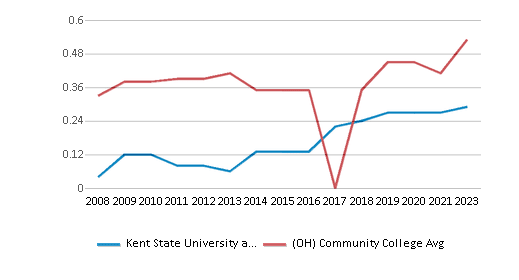
College Completion Rate (Students who graduate in less than 4 years)
15%
23%
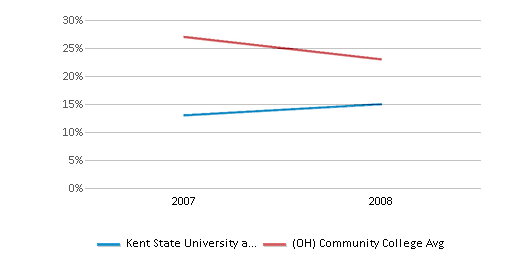
College Completion Rate (Students who graduate in 4 years or more than 4 years)
0.2422%
0.2197%
Average Graduate Earnings (10 Years)
$39,700
$31,900
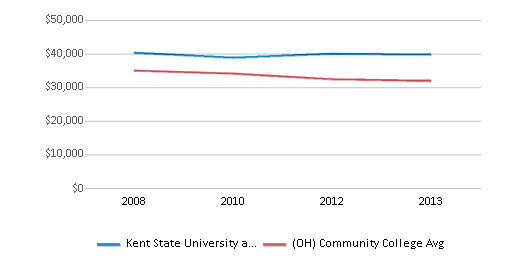
Tuition and Acceptance Rate
The public in-state tuition of $7,060 is more than the state average of $5,023. The in-state tuition has grown by 13% over four years.
The public out-state tuition of $16,168 is more than the state average of $10,825. The out-state tuition has grown by 7% over four years.
In-State Tuition Fees
$7,060
$5,023
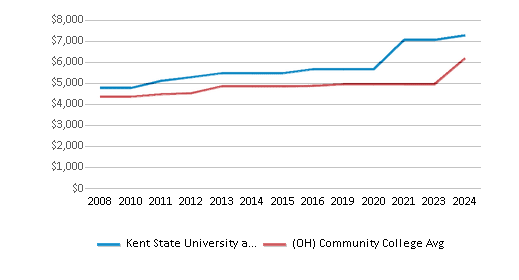
Out-State Tuition Fees
$16,168
$10,825
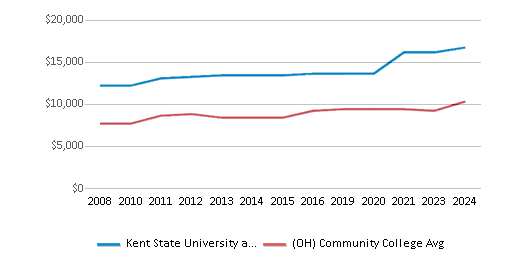
% Students Receiving Some Financial Aid
93%
88%
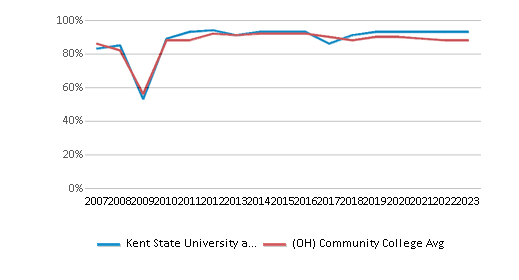
Median Debt for Graduates
$25,000
$18,500
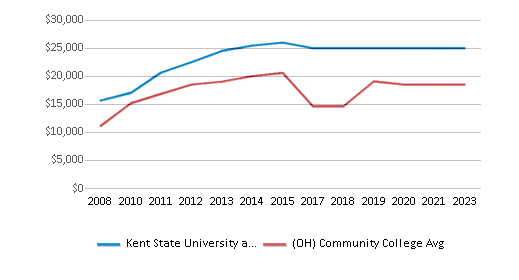
Median Debt for Dropouts
$8,750
$6,500
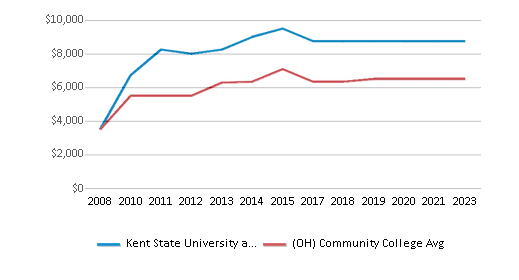
Acceptance Rate
n/a
73%
SAT Reading
n/a
460
SAT Math
n/a
475
SAT Writing
n/a
465
ACT Composite
n/a
21
ACT English
n/a
20
ACT Math
n/a
20
Sports
Total Sports Offered
6 sports
Sports
Baseball, Basketball, Bowling, Golf, Softball, Volleyball
Source: 2024 (or latest year available) Integrated Postsecondary Education Data System (IPEDS)
School Notes
- Since its founding as a teacher-training school in 1910, Kent State has become an engine for economic, cultural and workforce development in the region and beyond as one of the premiere Ohio colleges. The university also has earned acclaim for applying new knowledge to address the needs of the communities it serves and society as a whole. Kent State University Tuscarawas Campus offers classes and coursework leading to 19 associate degrees, including a computer animation degree or veterinary assistant training degree, six bachelor's degrees and a master's degree in technology. With 272 undergraduate academic programs available on Kent State's eight-campus network and a strong financial aid program in place for qualifying students, KSU Tuscarawas is a great place to commence your college education. The Tuscarawas Campus offers 19 associate degrees, six bachelor's degrees in business management, general studies, justice studies, industrial technology, nursing and technology; and the Master of Technology Degree. A recently constructed Science and Advanced Technology Center provides 50,000-square-feet of laboratory and classroom space for science, nursing and workforce development. Currently, the Tuscarawas Campus is conducting a fundraising campaign to construct a 55,000-square-foot, $13.5 million Fine and Performing Arts center that will enable the campus to expand academic and cultural programming. Kent State University is accredited without reservation by the North Central Association of Colleges and Schools. In addition, programs at Kent State Tuscarawas have received accreditation from organizations such as the Association of Collegiate Business Schools and Programs, the National League for Nursing Accrediting Commission Inc., the Ohio Board of Nursing and the Accreditation Board for Engineering and Technology.
Frequently Asked Questions
How much does Kent State University at Tuscarawas cost?
Kent State University at Tuscarawas's tuition is approximately $7,060 for In-State students and $16,168 for Out-State students.
What sports does Kent State University at Tuscarawas offer?
Kent State University at Tuscarawas offers 6 interscholastic sports: Baseball, Basketball, Bowling, Golf, Softball and Volleyball.
Recent Articles

Obtaining Your Bachelor's Degree at a Community College
Explore the evolving landscape of community colleges offering bachelor's degrees, addressing affordability, accessibility, and workforce needs.

A to Z of Community College Certificates and Courses
From business and healthcare to technology and skilled trades, the article showcases the breadth of options available to students seeking to enhance their knowledge, develop new skills, or pursue career advancement.

What is a Community College?
This comprehensive guide explains what a community college is, its history, and its role in higher education. It covers the types of programs offered, differences from four-year colleges, benefits of attending, and important considerations for prospective students, providing valuable insights for those exploring educational options.










